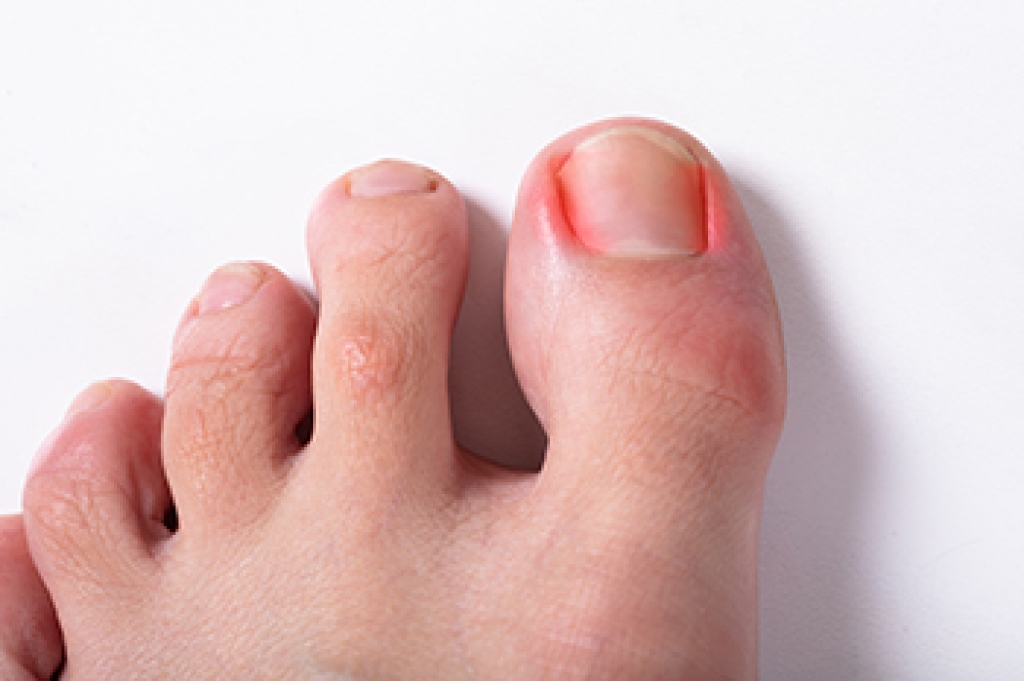
Ingrown toenails occur when the edge of a toenail grows into the surrounding skin, instead of growing over it, causing pain, tenderness, redness, and swelling. This often occurs on the big toe. Preventing ingrown toenails involves cutting nails straight across and avoiding trimming them too short. Wearing proper-fitting shoes and socks can also reduce pressure on toes. Ingrown toenails can be very painful. If you suffer from persistent or infected ingrown toenails, it's suggested that you seek professional care from a podiatrist. They can safely trim or remove the ingrown portion of the nail, prescribe antibiotics if needed, and offer advice on preventing future occurrences. Prompt treatment from a podiatrist can prevent complications, such as infection or the need for more extensive procedures.
Ingrown toenails may initially present themselves as a minor discomfort, but they may progress into an infection in the skin without proper treatment. For more information about ingrown toenails, contact Ramin Nadjafi, DPM of Advanced Podiatry Group. Our doctor can provide the care you need to keep you pain-free and on your feet.
Ingrown Toenails
Ingrown toenails are caused when the corner or side of a toenail grows into the soft flesh surrounding it. They often result in redness, swelling, pain, and in some cases, infection. This condition typically affects the big toe and may recur if it is not treated properly.
Causes
- Improper toenail trimming
- Genetics
- Improper shoe fitting
- Injury from pedicures or nail picking
- Abnormal gait
- Poor hygiene
You are more likely to develop an ingrown toenail if you are obese, have diabetes, arthritis, or have any fungal infection in your nails. Additionally, people who have foot or toe deformities are at a higher risk of developing an ingrown toenail.
Symptoms
Some symptoms of ingrown toenails are redness, swelling, and pain. In rare cases, there may be a yellowish drainage coming from the nail.
Treatment
Ignoring an ingrown toenail can have serious complications. Infections of the nail border can progress to a deeper soft-tissue infection, which can then turn into a bone infection. You should always speak with your podiatrist if you suspect you have an ingrown toenail, especially if you have diabetes or poor circulation.
If you have any questions, please feel free to contact our office located in Orlando, FL . We offer the newest diagnostic and treatment technologies for all your foot care needs.
